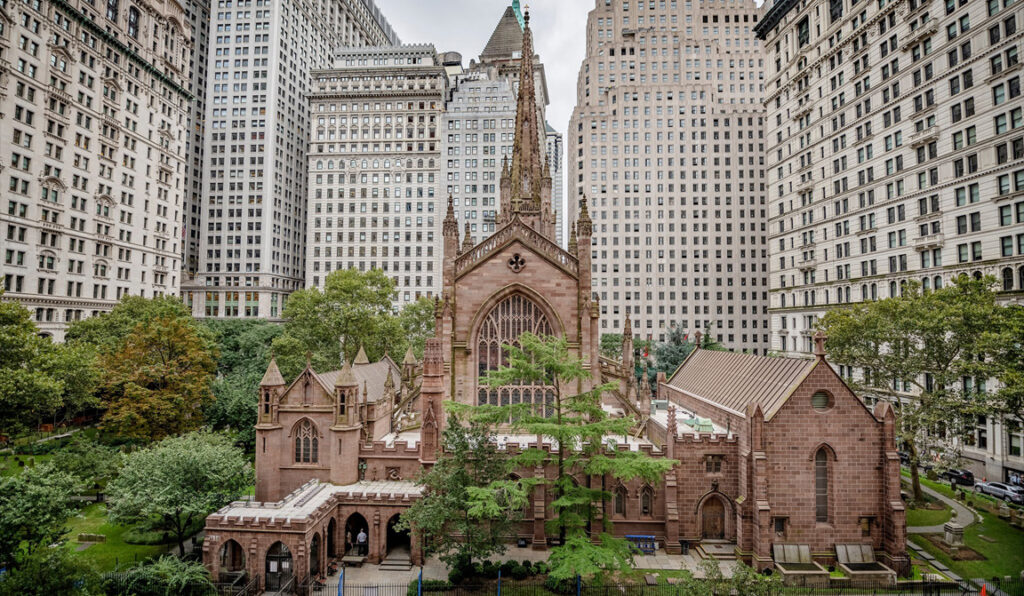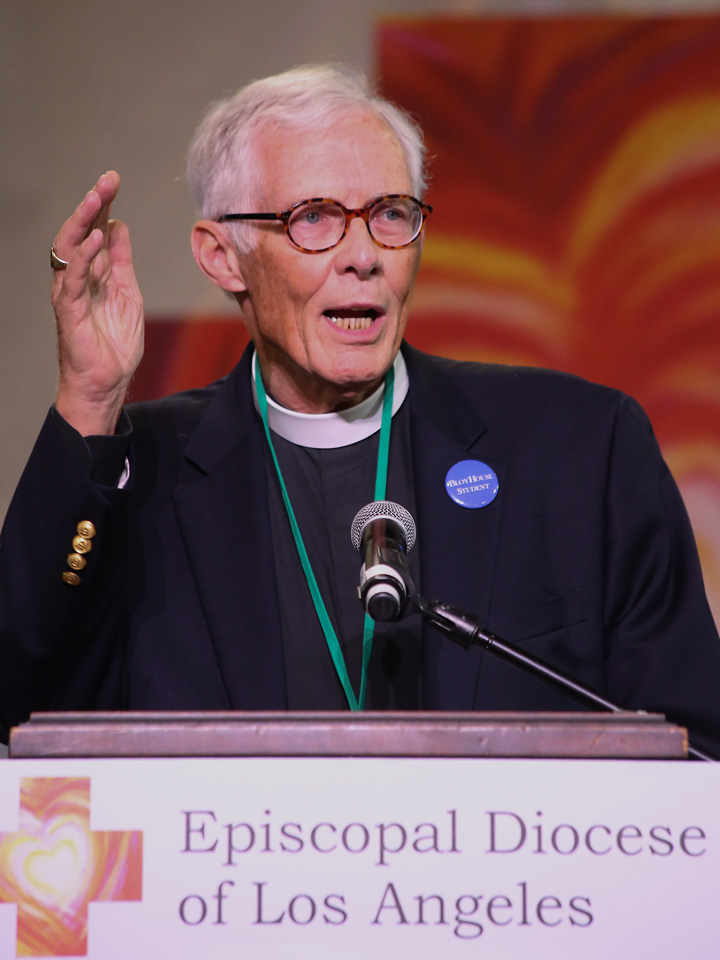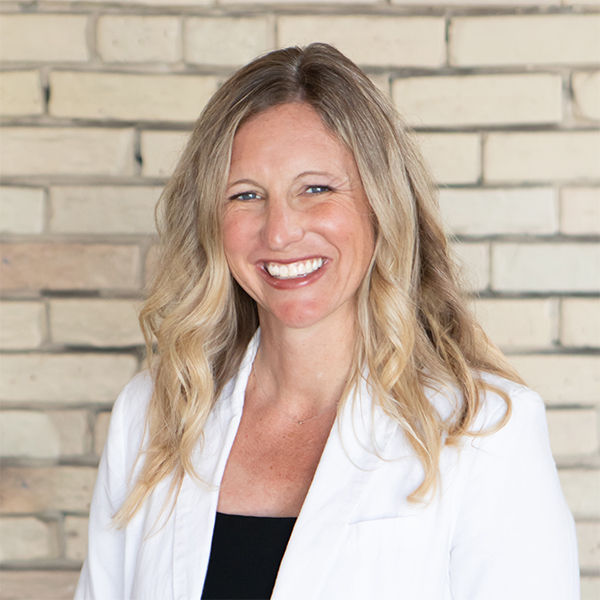
Trinity Wall Street stands among skyscrapers in New York’s financial district. Thanks to a 1697 charter from King William III of England, Trinity owns considerable property in the area, and uses a large share of the proceeds from rents and development to fund grants to projects in four areas: Housing and Homelessness, Racial Justice, Mission Real Estate Development, and Leadership Development.
[The Episcopal News] Trinity Church Wall Street has awarded a one-year $85,000 grant to Bloy House, the Episcopal Theological School at Los Angeles, to develop leadership engagement across political and ideological differences.
The growing political divide in the nation and even among some churches and their members, inspired the Very Rev. Gary Hall, Bloy House president, to apply for the grant, he told The Episcopal News recently in a telephone interview from New York City.
“I’ve been increasingly concerned in the last two decades that The Episcopal Church is really losing conservatives,” Hall said. “We’ve always prided ourselves on being a comprehensive church in theology and churchmanship and politics. We’ve had conservative members, liberal members. My concern is that we find a way, to the extent that we can, to keep conservatives in the church and to keep a broad perspective theologically and politically. There’s a sense we’re becoming more narrowly progressive.”
Hall noted in the grant application that The Episcopal Church, along with all mainline denominations, is experiencing decline in measurable ways: church starts, attendance, and numbers of pledges.
“Clergy are retiring early or leaving their posts for other work,” he wrote. “Bishops report an increasing amount of their time and resources given to rector/vestry conflict. While the project will not reverse those trends, it seeks to address the leadership side of the equation.”
Often clergy feel ill-equipped to deal with congregational conflict about political or ideological issues, added Hall, a seminary professor and administrator.

Then-interim Dean Gary Hall of Bloy House speaks at the 2021 Diocesan Convention. He now serves as the theological school’s president. Photo: Janet Kawamoto
Bloy House will partner with Grand Rapids, Michigan-based The Colossian Forum, a 13-year-old agency that equips Christians to transform conflict into opportunities for spiritual growth, according to Jess Shults, the organization’s chief partnerships officer. The Forum also received a grant from Trinity Church Wall Street.
The goal will be for “Bloy House to work with the congregations and judicatories and with the Colossian Forum to build skills and strategies for addressing and leading through this conflict,” said Hall. “Because of its hybrid nature as both an academic and diocesan institution, Bloy House is uniquely able to gather a wide range of resources to support the participants.”
“At the center of the project, they are recognizing there’s some disparity between where priests are at and how they see and navigate the world, and those in the pew – especially in rural congregations they are noticing a large gap,” Shults said, during a recent telephone interview from her Grand Rapids-area office.
Even the best leaders “struggle to connect to such skills,” she added. “Most people haven’t done continuing education or training focused on conflict and polarization. Finding a way to do that builds hope and courage.”
Transformation is measurable, through pre- and post-training surveys, Shults added. “Data suggests that developing skills for navigating difference builds hope. Especially leaders of Christian organizations have felt the stress and burnout of the last two years and for some it is hard to be able to even imagine there’s a way out. (But) to be able to be in a space and share a common narrative of what leadership has been like the last few years helps them to feel less alone, and to reconnect to hope. To connect them with specific skills gives them access to courage once again.”
The Forum website cites St. Paul’s warning in the book of Galatians about those claiming to follow Jesus who are “biting and devouring” each other. “He predicts that if this behavior continues, they will end up destroying one another,” said Shults. “This 2,000-year-old warning could have been written to the church in North America without a single alteration.
“But Scripture offers a solution … God invites us to be transformed by the renewing of our minds through the power of the Holy Spirit, even in the midst of disagreement.”

Jess Shults is chief partnerships officer of The Colossian Forum, which will team with Bloy House to develop opportunities for conflict resolution.
The agency offers trainings to churches, Christian schools, and institutions and has focused on issues such as creation and evolution; women and men; human sexuality; and politics. Leaders focus on how to create dialogue and also how to navigate difference in their daily lives, Shults said.
After Hall gathers a cohort of clergy from congregations in the Dioceses of Los Angeles, San Diego, and San Joaquin, the Forum will offer them a two-day training involving “casting a biblical and theological vision of conflict as an opportunity for discipleship and witness rather than something to be avoided at all costs,” Shults said.
The online and in-person trainings also will include coaching and ongoing support. The pilot program is expected to begin in the Spring of 2024.
The Forum is not affiliated with a particular denomination and conducts trainings across the U.S. and Canada. “We will be in 13 different denominations this year,” Shults said.
Rob Garris, managing director of Trinity Church Wall Street’s grantmaking in support of leadership development for the church, told the News he suggested Bloy House partner with the Forum, which was profiled (https://www.wsj.com/articles/abortion-guns-and-trump-a-church-group-tries-to-navigate-americas-divisions-11608298552) a few years ago in the Wall Street Journal.
For some time, “we had been hearing from seminaries, bishops, priests, that there was sense of urgency on this front,” Garris told the News. “They could see a trend emerging. (And) Bloy House is a well-known, long-established institution. We had a lot of confidence in their institutional capacity to do this work.”
So far this year, Trinity Church Wall Street has given away nearly $40 million in grants, he said. “[Trinity] is deeply committed to help churches develop lay and ordained leadership and to strengthen the church going forward into the future.”
Hall agreed, noting that clergy, particularly those who are newly ordained, “learn an academic language in the university setting that may be distancing them from people in the pews, like postcolonialism and imperialism, that can come off as reflexively left-wing language.
“Basically, if you’re clergy and you’ve got Trump people in your pews, the question is; how do I lead in a way that stays clear about what we stand for, in terms of racism, sexism, homophobia? How do we maintain our positions but find a way to stay in relationship with people who view those positions as left wing?”
